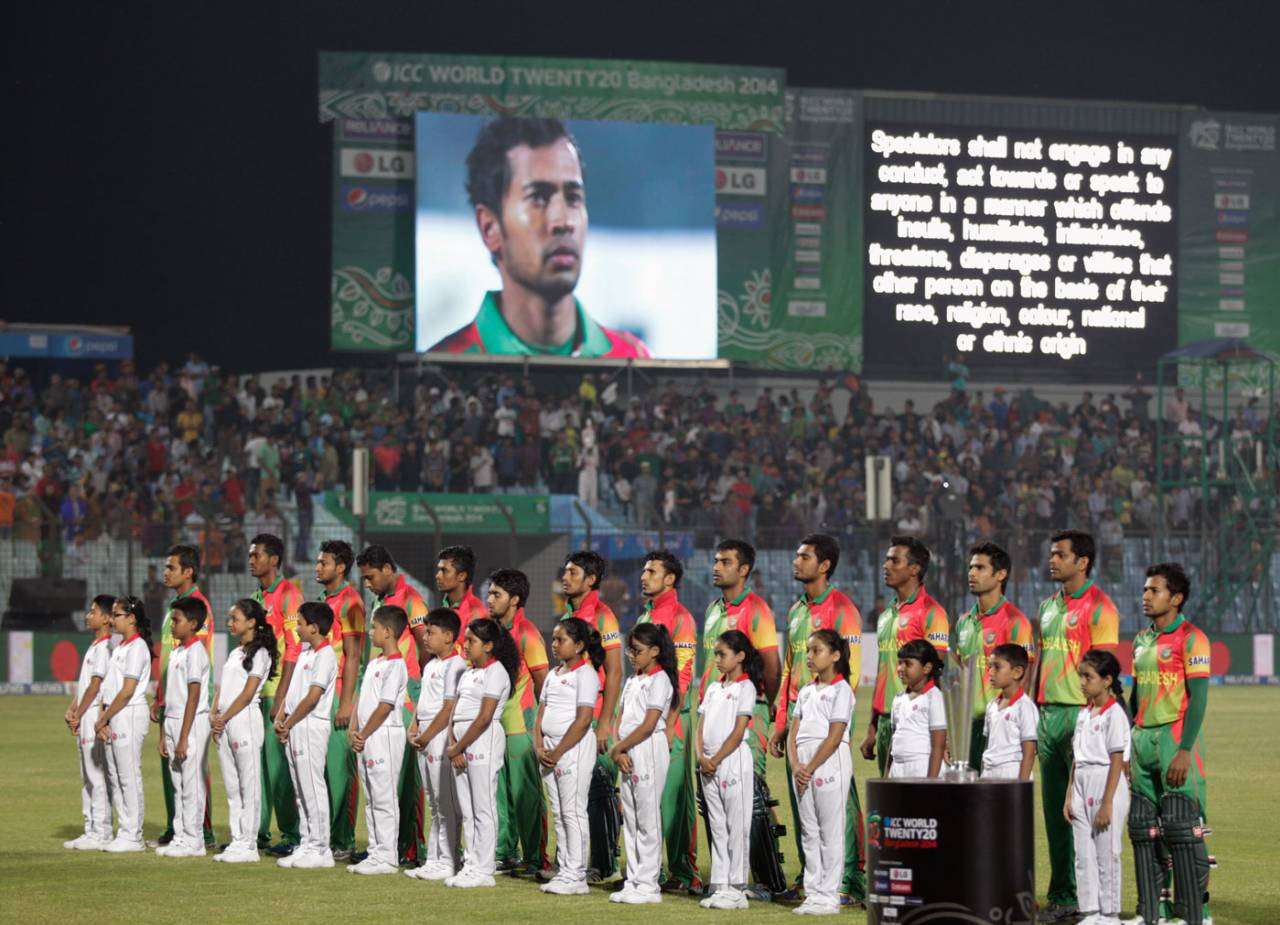The anthem's call
Do you feel a pull when you hear the song of another nation?
Abhishek Purohit
Mar 26, 2014, 8:20 AM

Music and lyrics reaffirm a familial connection with a country • ICC
There is something about a national anthem playing in a crowded stadium that can move you deeply. If it is your country's national anthem, the major feeling is obviously patriotic. But what if it is that of another country and you can still relate to it for some
reason?
Just before Bangladesh's opening World T20 match against West Indies, I went to the top level of the media centre at the Shere Bangla Stadium in Dhaka. I wanted to see how the cricket-crazy crowd reacted to their team walking out and lining up for the national anthem. I also wanted to listen to the anthem along with the rest of the crowd, not from behind the thick glass wall of the press box. As expected, there was a huge roar when the Bangladesh players appeared on the field, even though the stadium was just over half full, with people still making their way in.
Suddenly the roar turned into absolute silence when it was announced that people should stand for the anthems of both sides. It was so sudden, the silence seemed to reverberate louder than the roar. A short burst of cheering followed the end of "Rally Round the West Indies" before the silence returned.
Then started "Amar Sonar Bangla". I felt disappointed at first, because it was the instrumental version when I had been expecting a full vocal one. Then I felt myself react spontaneously, even to the instrumental.
"Amar Sonar Bangla" was written by Rabindranath Tagore in 1905, the year the province of Bengal in undivided India was
partitioned by the British. Tagore is a Bengali icon, revered by Bengalis on both sides of the divide.
My connection to Bengal, the Indian side of it, is that my mother was born and raised there. My cousins and uncles are all fluent in Bangla. My mother's fluency in the language has not been passed on to me at all, though. I can claim to understand a few stray words, and if I am fortunate, a few sentences on occasion. But the bond has always been there. I have made multiple trips to the region since childhood.
And as "Amar Sonar Bangla" played on, that connection reaffirmed itself. I am in a land that is officially not mine. It was in the time of my grandfather, but it no longer is. My grandfather worked in Narayanganj, just south of Dhaka, until India's partition. He was caught in the terrible riots that broke out at that time, and his life was saved by a Muslim.
In a sense, I owe my existence to this region. They speak and love the same language here that my mother still adores, despite having lived in distant Mumbai for more than three decades. They speak and love the same language here that I cannot understand much but which calls out to a part of me even from an instrumental version of a song. It is telling me it can claim a part of me as its own, that I can claim a part of it as my own. It is making my hair stand on end, my lips quiver, turning my eyes moist.
So many thoughts are churning in my head. Is it natural to react like this? Am I supposed to feel this affinity? Isn't this another
country's national anthem after all? What if someone sees me now? And then the melody comes to an end. And I am brought back to reality with a louder, mightier roar from the crowd. West Bengal. Bangladesh. That connection, whatever it is, will always be there. It has just been reaffirmed unexpectedly at a cricket stadium.
Abhishek Purohit is a sub-editor at ESPNcricinfo